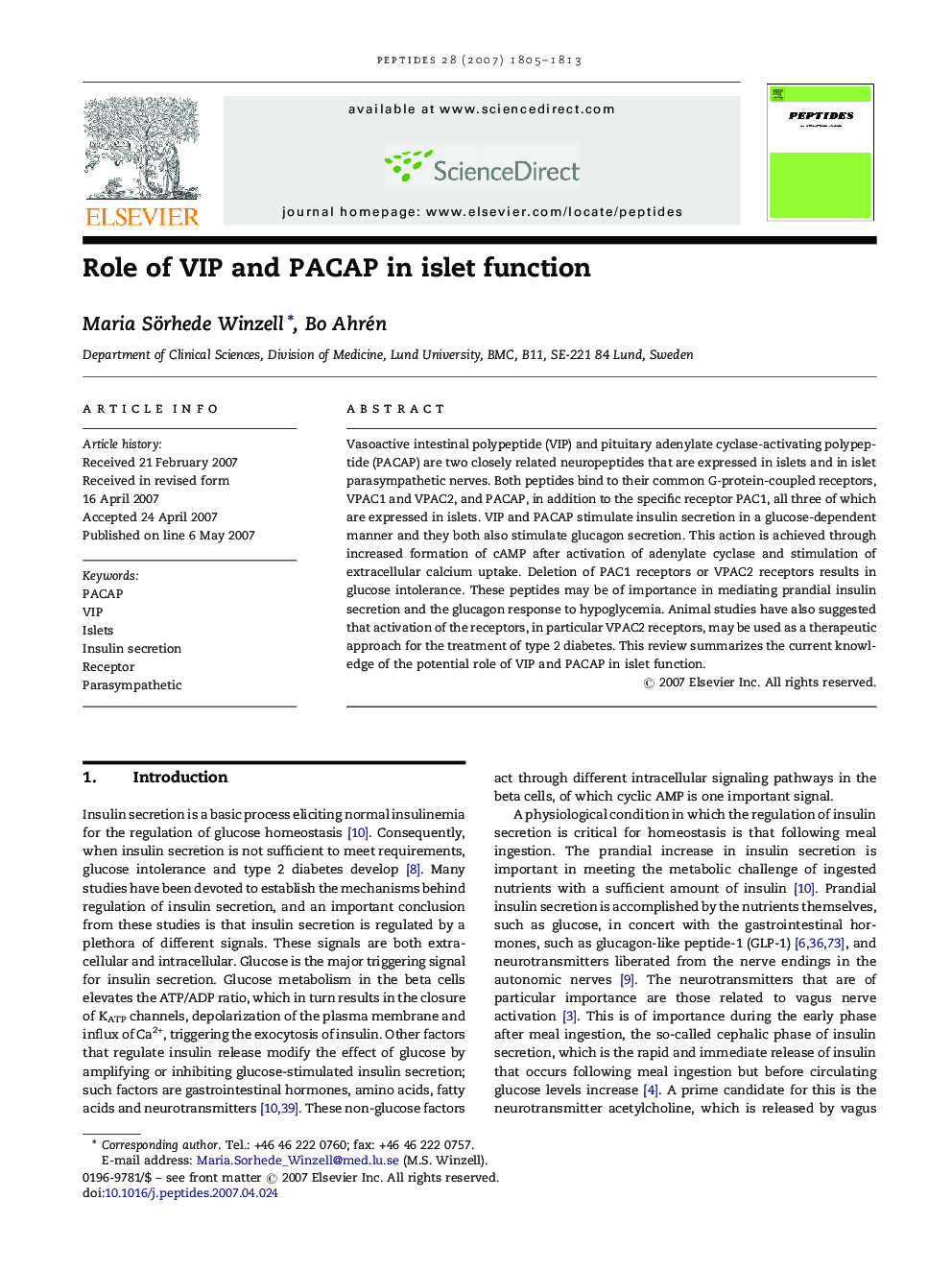| Article ID | Journal | Published Year | Pages | File Type |
|---|---|---|---|---|
| 2008481 | Peptides | 2007 | 9 Pages |
Vasoactive intestinal polypeptide (VIP) and pituitary adenylate cyclase-activating polypeptide (PACAP) are two closely related neuropeptides that are expressed in islets and in islet parasympathetic nerves. Both peptides bind to their common G-protein-coupled receptors, VPAC1 and VPAC2, and PACAP, in addition to the specific receptor PAC1, all three of which are expressed in islets. VIP and PACAP stimulate insulin secretion in a glucose-dependent manner and they both also stimulate glucagon secretion. This action is achieved through increased formation of cAMP after activation of adenylate cyclase and stimulation of extracellular calcium uptake. Deletion of PAC1 receptors or VPAC2 receptors results in glucose intolerance. These peptides may be of importance in mediating prandial insulin secretion and the glucagon response to hypoglycemia. Animal studies have also suggested that activation of the receptors, in particular VPAC2 receptors, may be used as a therapeutic approach for the treatment of type 2 diabetes. This review summarizes the current knowledge of the potential role of VIP and PACAP in islet function.
